OUR MAYOR
Meet Randall
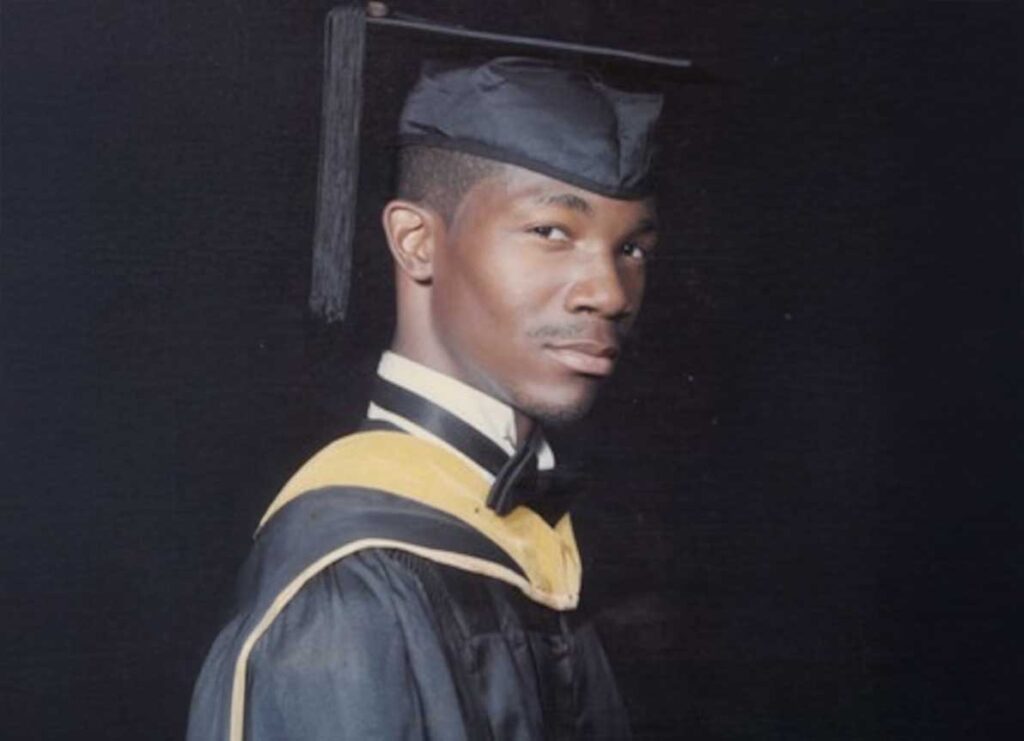
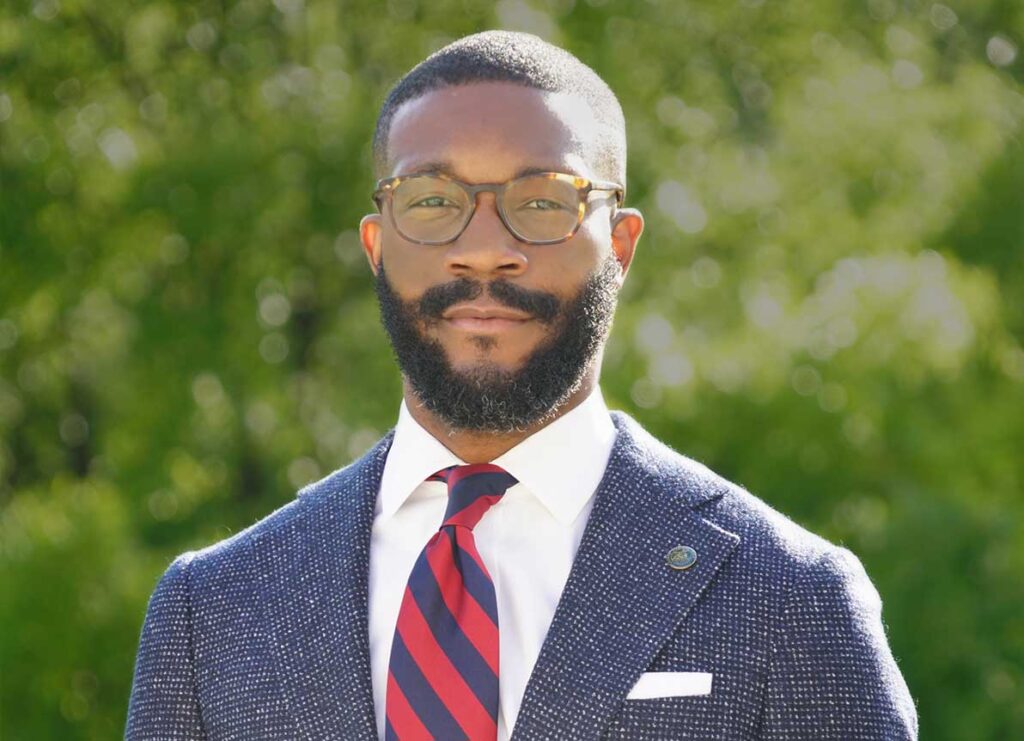
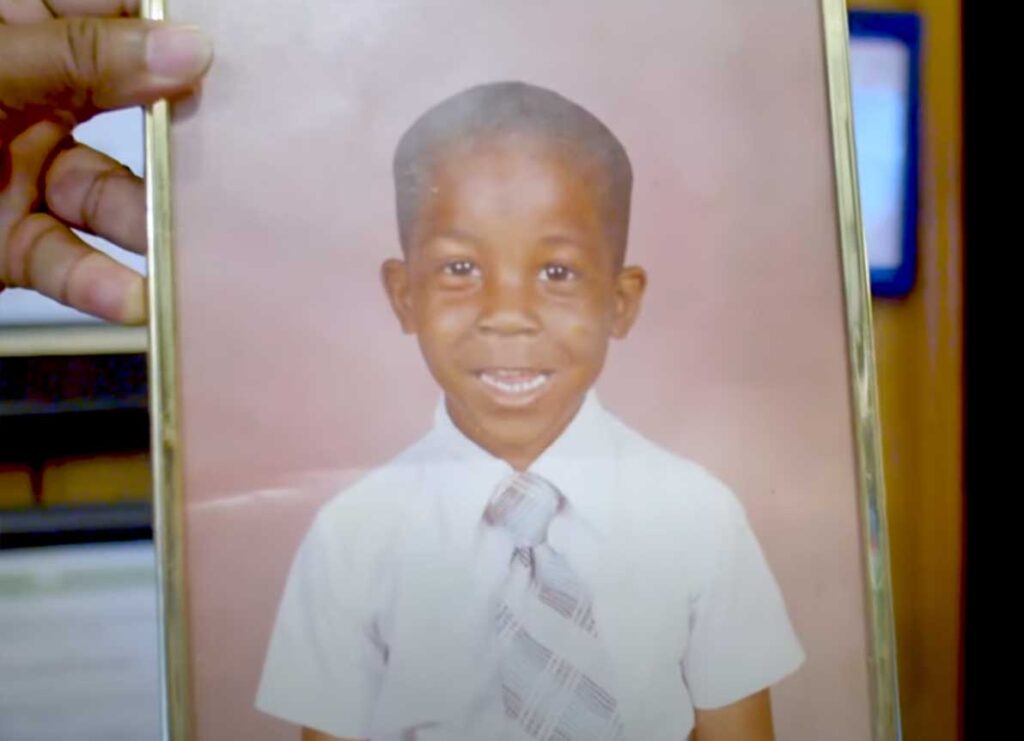
Growing up in Birmingham
With the exception of four years in Atlanta earning my degree from Morehouse College, I’ve called Birmingham home my entire life. Growing up here meant growing up everywhere—my family roots span across neighborhoods from North Birmingham to Kingston, Collegeville, West End, Pratt City, and Fountain Heights. That deep connection to our communities has shaped who I am and how I lead.
My upbringing was multi-generational and full of love, resilience, and perspective. For much of my childhood, I lived in homes where four generations shared space, laughter, and challenges. My great-grandmother, who lived to be 100, was the anchor of our family for many years. She taught me the value of listening, respecting others, and never giving up.
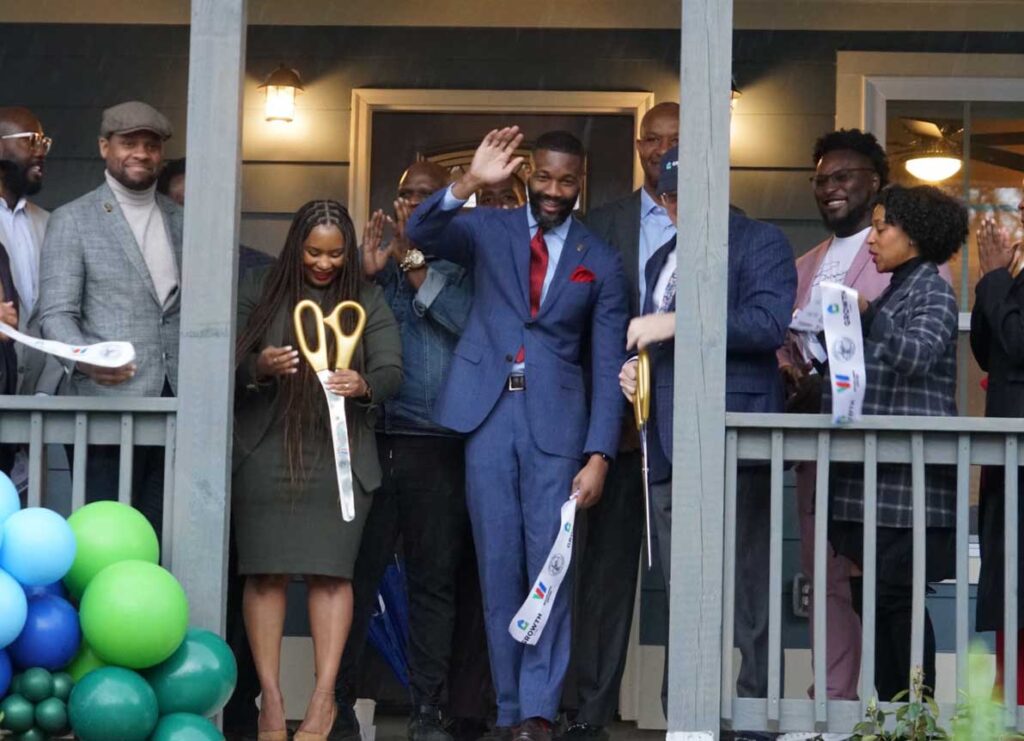
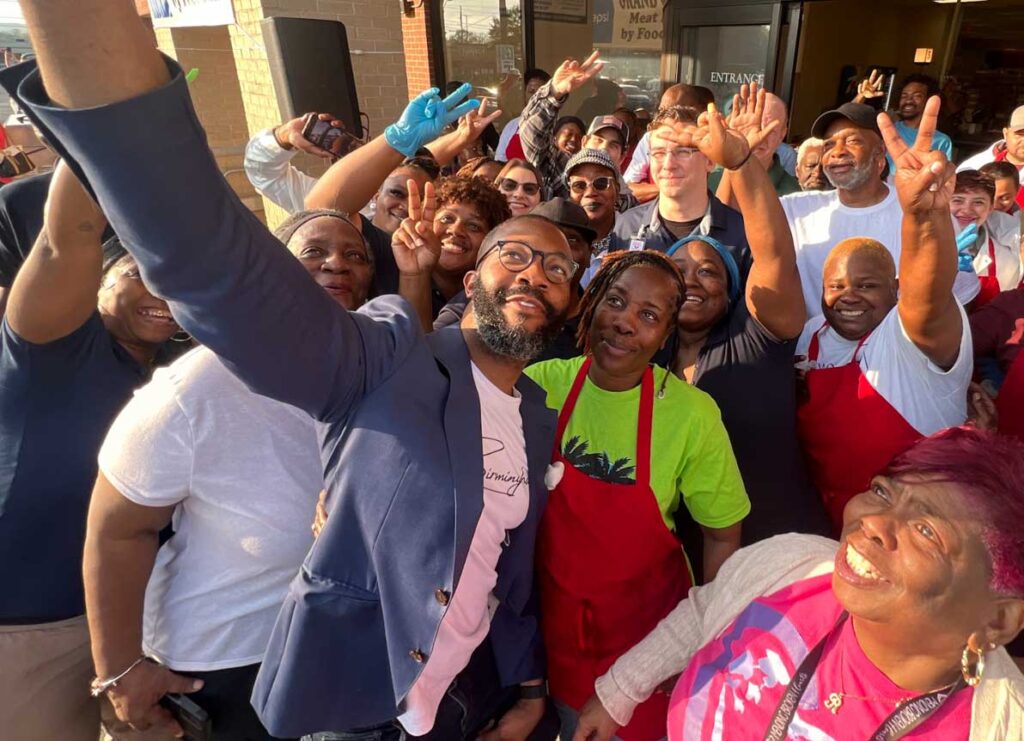
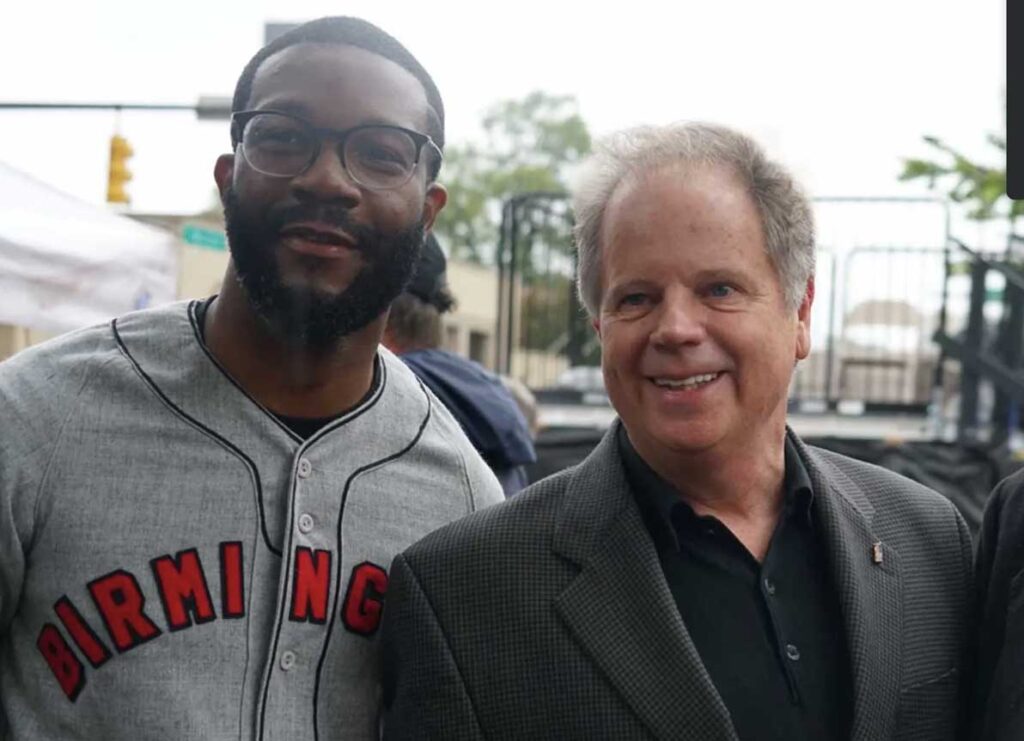
Committed to Service
At 15, while working as a bagger at a Birmingham supermarket, I first learned the power of service—and how even the smallest actions could make a difference. That mindset carried me through Morehouse, law school, and ultimately into public service. After graduating, I came back home, working at City Hall and the Jefferson County Committee on Economic Opportunity (JCCEO) before earning my law degree from Cumberland School of Law. As an assistant city attorney, I came to see Birmingham not just as my hometown but as my most important client—one I wanted to serve in the most impactful way possible.
That drive to serve led me to public office. I ran for the Birmingham Board of Education in 2009 and lost. But in 2013, I ran again—and won. Serving on the school board reinforced my belief that real change doesn’t happen in isolation. It requires partnerships between government, communities, businesses, and the people who call Birmingham home.
In 2017, I ran for Mayor with a simple message: Birmingham deserves better. I knocked on over 50,000 doors, listening to families talk about their hopes and struggles, their neighborhoods, their dreams for their children, and what they expected from their city government. Those conversations shaped my vision for a Birmingham where opportunity isn’t confined to one zip code—where every neighborhood, every resident, has a fair shot at success.
I WANTED TO BE MAYOR
As your Mayor, we’ve made historic progress together. We’ve revitalized Birmingham’s 99 neighborhoods through millions of dollars invested in street paving, demolition, and affordable housing. We’ve reimagined economic development, leading a $400 million expansion of the regional convention center while reforming financial incentives to create thousands of new jobs. And we’ve strengthened our city’s financial foundation—conducting a citywide performance assessment, stabilizing our bond rating, and aggressively addressing pension liabilities to protect our retirees.
We’ve also made unprecedented investments in our young people. The Birmingham Promise has provided tuition-free access to Alabama’s public two- and four-year colleges, giving nearly 800 Birmingham City Schools graduates a pathway to higher education and career success. In addition, we’ve expanded apprenticeship and internship programs, ensuring students have the opportunity to earn while they learn, building skills for a competitive workforce. But education and economic opportunity are just part of the equation—because ensuring a bright future for our young people also means making sure they grow up in a city where they feel safe and supported.
Gun violence isn’t just a statistic to me—it’s deeply personal. In 2011, my older brother, Ralph, was tragically killed in a shooting. The pain of that loss was compounded in 2017 when my nephew, Ralph Woodfin III, was also taken by gun violence. These devastating events have profoundly shaped my commitment to making Birmingham a safer place for all.
In response to the public health crisis that is gun violence, we’ve implemented comprehensive strategies that address its root causes. This includes investing in affordable housing, creating economic opportunities, expanding mental health resources, and developing programs aimed at youth development. By collaborating with law enforcement, community leaders, and local organizations, we’re working tirelessly to foster a safer, more resilient city where every resident feels secure and supported.
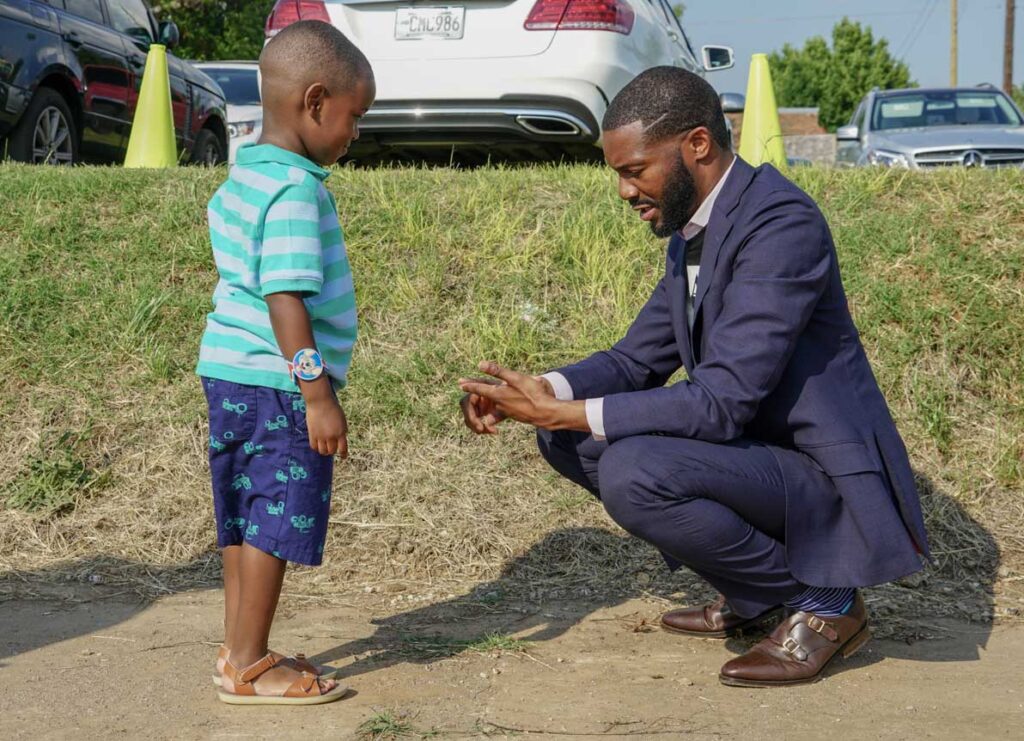
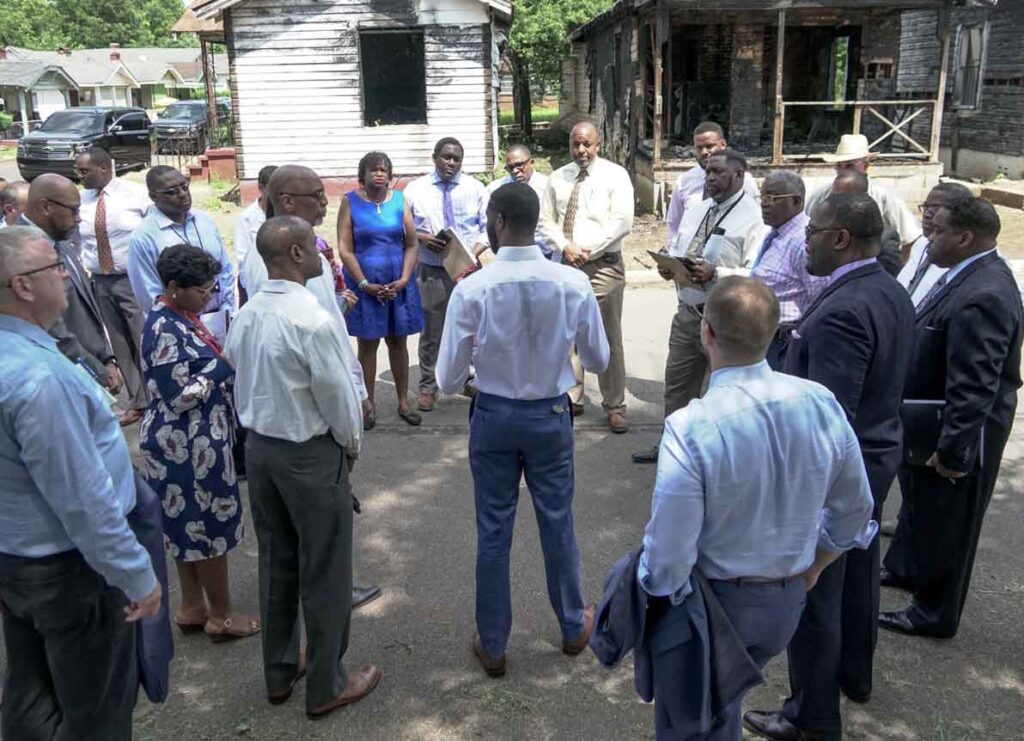
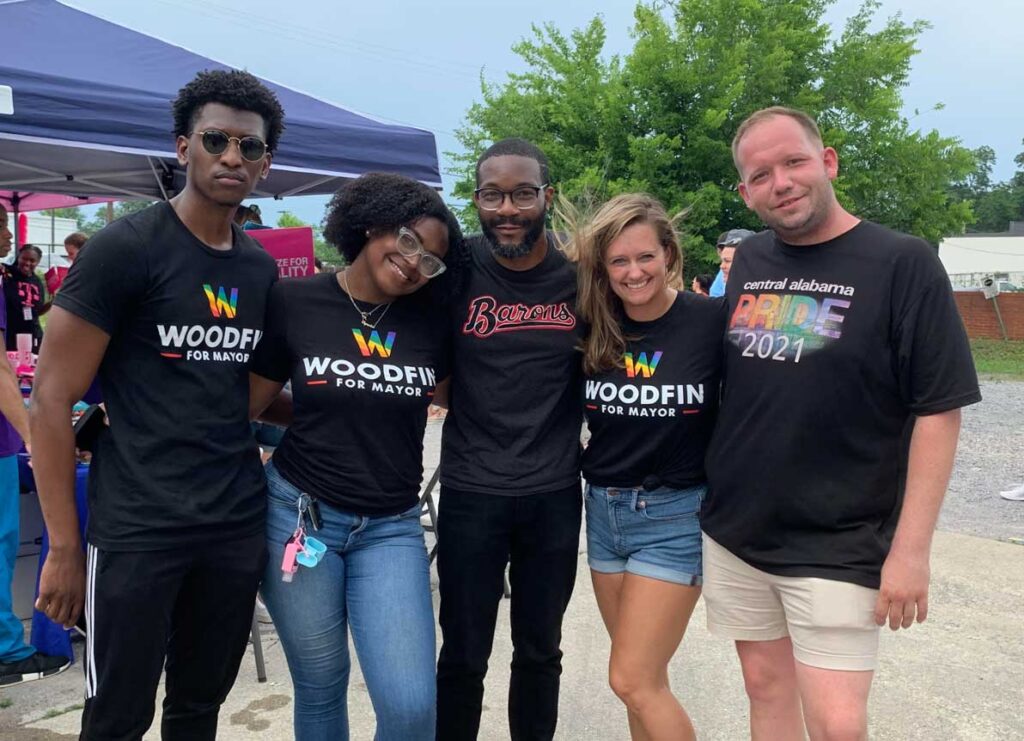
Unwavering Commitment
Our efforts have led to the removal of thousands of illegal firearms from our streets and the launch of public awareness campaigns, such as the PEACE initiative, which features stories from mothers who have lost children to gun violence. While the journey toward a safer Birmingham is ongoing, these initiatives represent our unwavering commitment to protecting our community and honoring the memories of those we’ve lost.
Through it all, Birmingham has remained resilient. We’ve faced challenges, from a global pandemic to moments of reckoning on racial and economic justice. But every challenge has been met with action. When our city demanded accountability, we removed a 115-year-old Confederate monument. When families struggled under the weight of economic uncertainty, we launched Embrace Mothers, a guaranteed income program providing direct cash assistance to single mothers in Birmingham.
Leadership
When workers needed security, we led the state in passing progressive policies like gender-neutral parental leave—because every parent should have the time and support to care for a newborn, bond with their child, and be present for their family without financial strain.
As a new father myself, I know firsthand how precious those early moments are, and I believe no parent should have to choose between their job and their family. This policy recognizes that parenting responsibilities aren’t one-size-fits-all and ensures that families—no matter their structure—get the support they need during one of life’s most critical moments.
Leadership isn’t just about policy—it’s about people. And through partnerships and purpose-driven action, we are building a city that works for everyone.
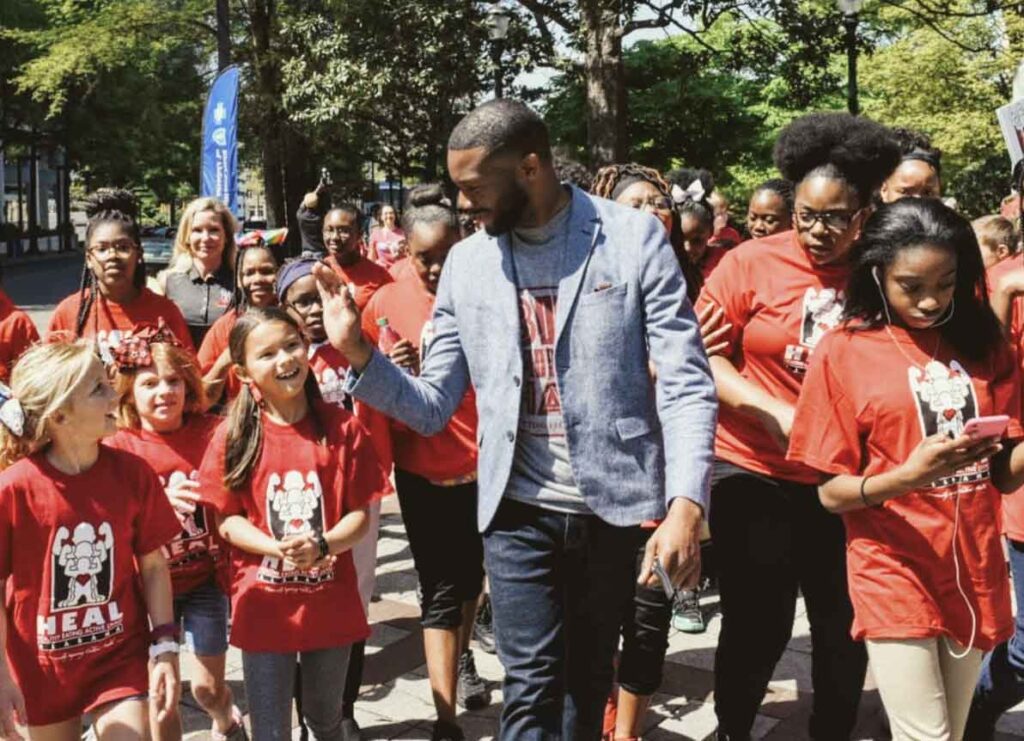


Son of Birmingham
Over the past year, as I worked on my book, Son of Birmingham, I’ve had the chance to reflect on what leadership, service, and progress truly mean. Time and again, I’ve come back to the same truth: the challenges we face may evolve, but the values that bind us—resilience, community, and the unshakable belief in a better future—remain constant. That belief is what keeps me going. It’s why I ran in the first place, and it’s why I’m committed to continuing this work.
I’ve always said that Birmingham’s greatest strength is its people. That’s what has fueled me every step of this journey—from the first door I knocked on to the work we do every day to move our city forward. And as I continue this work, I do so as a proud husband and father, raising my two sons and daughter in the city I love.
Our city’s story is still being written, and we all have a role to play in shaping its future. This August, join me to keep pushing, keep building, and keep believing in what Birmingham can become—together.